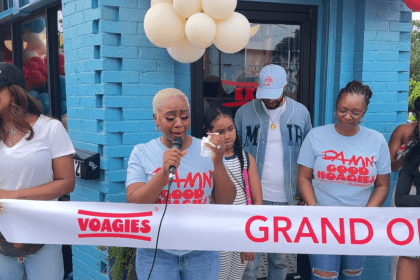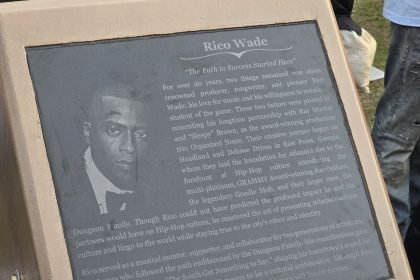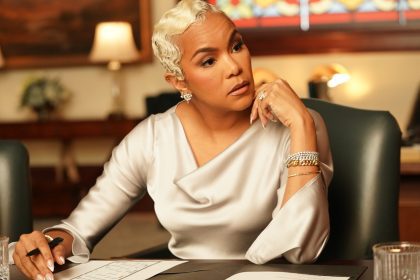
ATLANTA – Morehouse School of Medicine was at the epicenter of the medical universe as Georgia Gov. Nathan Deal proclaimed Sept. 1 Personalized Medicine Day in Georgia. Nationally renowned doctors and scientists detailed how personalized medicine will revolutionize the field, dramatically decrease the cost of care, while significantly increasing the number of poor and disadvantage people who can have access to high-quality treatment.
The governor was joined at the historic event by keynote speaker Dr. Leroy Hood, the founder of the Institute of Systems Biology, Ambassador Andrew Young, former U.S. Surgeon General David Satcher and and Dr. Valerie Montgomery-Rice, the dean and executive vice president of the Morehouse School of Medicine (MSM). They, along with approximately 500 other physicians, health care professionals, scientists, engineers and medical students, convened inside the MSM auditorium to hear Hood elucidate how systems biology will cause the transformation of medicine as we know it.
“This was one of the most important events I’ve had the opportunity to participate in since I’ve been here,” says Montgomery-Rice. “The reason is because it really did begin to connect the dots with the great science that we do at this wonderful institution. … We’re going to utilize that information for the communities who don’t have a voice — and are sometimes not given the opportunity to participate in clinical research. Personalized medicine is what we’re going to use to make sure that those great discoveries are most beneficial to those individuals, and those are individuals who are members of any community.”

Gov. Deal recognized the clinical research deal through Atlanta Clinical and Translational Science Institute that includes MSM, Emory University and Georgia Institute of Technology, Georgia Bio and Iverson Genetics.
“The importance of today is new technology that is now available to us that really has the potential to change the way we view medicine in terms of individual risk factors and individual genetic makeup. What I hope will happen is a greater emphasis on prevention. Right now, the emphasis is on the disease and the treatment of the disease. And while that is important, I think that because of technology, we have the opportunity for a new kind of focus, which is prevention,” said Dr. David Satcher.
Ambassador Andrew Young, who’s spent the balance of his adult live advocating for humanity on a variety of fronts, was ecstatic about what personalized medicine — also called P4 medicine — would mean to the country and the world.

“I’m getting old and I’m getting scared. And I don’t like the way present-day medicine is being practiced where they either cut you or saw you or give you some kind of vile medicine that upsets your stomach,” Young said. “I’ve always been interested in the evolution of medicine. We thought of Morehouse where we would be able to develop a unique medical approach to have poor people to have the best medicine available.”
It was also a monumental day for Morehouse School of Medicine, says Rice. “What was really important it showed how much our stakeholders value us. The fact that the governor came here and used this as an opportunity to announce Personalized Medicine Day in Georgia, that Ambassador Andrew Young was here and the 450 people who weren’t necessarily affiliated with Morehouse. Now they see us in a different light, I believe. They see us as contributing to the conversation that is going to lead to change, and that is the future and the future is personalized medicine. It’s going to make the difference for the communities that we care about.”
–terry shropshire

















